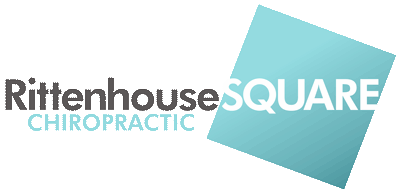A few points before we get started. These podcasts are not intended to sway you one way or the other. My intention is to break down a few popular diets or diet methods to help people avoid common pitfalls. However, if I do end the video by making a case for the diet or diet method, then that most likely means I believe it can have real utility from a health perspective. Another point about today’s topic, because vegetarianism carries a lot more emotional and societal weight than other diets, I will NOT be getting into the moral or environmental conversations that typically accompany vegetarianism. I would love to do that on a different episode and most certainly will but that is not the intent for this episode.
Alright, with all that out of the way, let’s get into the top 5 problems with vegetarianism!
- Lack of protein – So obviously some people may say this is going after the low hanging fruit, because lack of protein is probably the most common criticism of this diet. The rebuttal to that is that you can still get adequate protein from beans, legumes and nuts. But my rebuttal to THAT is that it’s NOT just the number of grams on the back of the label. What the label doesn’t tell you is the amount that is actually bioavailable to your body. Protein in beef is almost 3 times more bioavailable than the same amount of protein in beans.
So, for example if you’re eating navy beans instead of beef for protein, you’d have to eat around 3x the calories to get the same protein. That’s a significant amount of more calories and also a significant amount of more carbs. This is the opposite of what we need in a world where obesity and diabetes is increasing within the population at an alarming rate.
- Lack of Vitamin B12 – the best source of vitamin B12 is by far animal products. When we’re low in B12 we develop anemia, and we really damage our brains and cause memory issues as well as numbness. This will also lead to higher rates of depression, psychosis, mania, and changes in behavior and personality.
You can take supplements to try and combat this but unfortunately, you’re going to find it very difficult to become adequate in that regard.
- Requires a lot of planning and decision making – if you don’t plan ahead, you’ll fall victim to whatever happens to be laying around. Most of what’s just laying around in people’s cupboards or cabinets is just junk food. High carb, sometimes high fat, no or very low protein snacks. But because its “vegetarian” people go with it.
For example, if you’re at a cookout in the summer you may end up just having to eat the potato chips instead of having a nice piece of grilled chicken or a steak. If you’re out to eat and the place isn’t vegetarian friendly, which admittedly a lot of places are now, you’ll end up just eating a plate of French fries with ketchup or order a pizza instead of ordering something with highly digestible animal protein. My point is that in the long run they’re going to be put in a lot of situations where they’ll have to settle for pretty much worthless food like French fries and potato chips.
- Vegetarian replacement food isn’t healthy – often times dishes will swap out the meat for cheese. For example, in many pastas, sandwiches, salads, and things like enchiladas they’ll just throw cheese in where the meat should be. Now while cheese has some nutritional value, it has way less protein and almost 3 times the calories as say chicken breast does.
I don’t think its controversial to say that a high cheese diet isn’t very healthy. And the fake meat substitutes are packed with additives, gluten, soy, and other harmful pro-inflammatory substances.
- Not enough Omega-3 – Finally, another major issue with the vegetarian diet is the lack of Omega-3 fatty acids, namely DHA and EPA. These omegas are absolutely essential for brain health and cognitive development, which is the reason many believe our brains became more advanced once we figured out how to properly cook and eat meat.
By not eating meat and fish and sometimes eggs in the case of vegans, the body won’t get enough of these omega 3’s. Omega 3’s are present in plants, but like a lot of other essential nutrients, the bioavailability is very low.
So, I actually really can’t make a case for a vegetarian or vegan diet strictly from a health perspective. Like I mentioned, if we’re looking at it from a moral or environmental reason, then that’s a conversation for another day. Health perspective alone, I can’t recommend it. But IF you are going to do it, here are 5 things I highly recommend doing.
- Supplement with protein powder, even though vegetarian protein powder will be less bioavailable than whey or casein.
- Supplement with a lot of B12
- Plan ahead
- Learn how to cook and find good replacements other than cheese. Cheese is not a health food.
- Supplement with a high-quality Omega-3 supplement
So that’s it guys if you or someone you know are choosing to go vegetarian make sure they are aware of these issues and are taking the steps necessary to prevent these deficiencies. I have worked with vegetarians before in my anti-inflammatory programs and have had great success so it can be done it just takes a lot of work. Ok everyone as always please subscribe to my channel on YouTube and listen on SoundCloud. Peace out!
